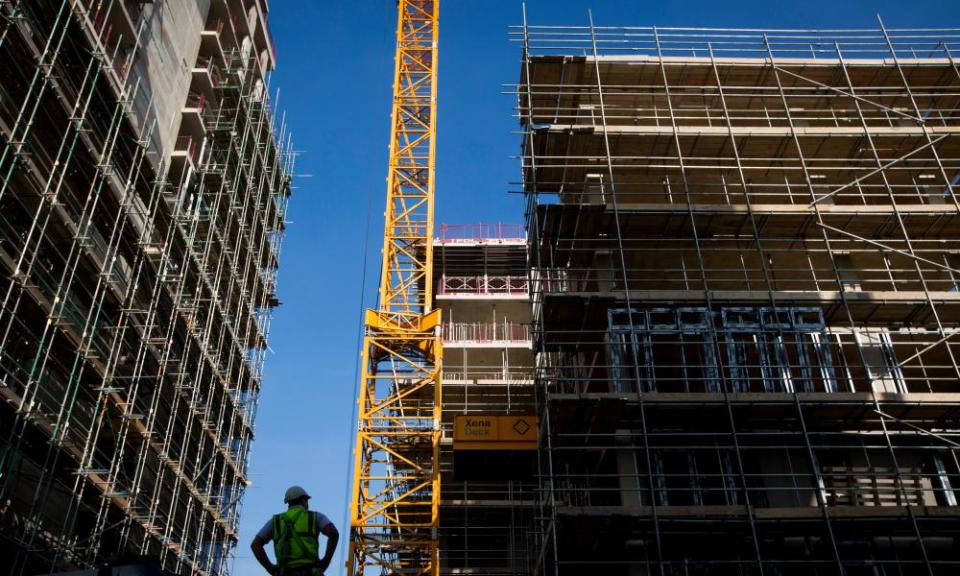Taylor Wimpey sets aside £125m to improve fire safety in apartment blocks

Taylor Wimpey, one of the UK’s biggest housebuilders, has set aside £125m to replace cladding and carry out other fire safety work on its apartment buildings after huge flaws were uncovered in the wake of the 2017 Grenfell fire.
The company said the fund would support fire safety work for leaseholders in apartment blocks built in the past 20 years, including those below 18 metres in height.
“We have taken this decision in order to provide certainty for customers and leaseholders and to avoid them bearing the cost of investment to ensure their buildings are safe,” said Pete Redfern, the chief executive. “Many leaseholders have been left with unreasonably large bills to ensure their properties are safe and in line with post-Grenfell fire safety standards.”
Thousands of buildings around the country have become the subject of a growing building safety crisis, as inspections have unearthed potentially dangerous materials used for cladding and insulation, missing fire breaks and other issues. Many owners of flats have been receiving huge bills for fire safety measures as a result, rising in the worst case to more than £100,000.
Taylor Wimpey initially set aside £40m to remove and replace ACM (aluminium composite material) cladding on high-rise towers after the Grenfell fire in west London, which killed 72 people. It has completed work on 12 out of 19 apartment buildings so far.
Following new government guidance on fire safety improvement requirements issued last month, Taylor Wimpey has identified a further 232 apartment buildings that may require fire safety work.
The government recently promised £3.5bn of extra funding to remove unsafe cladding from high rises more than 18 metres high, on top of £1.6bn announced last year. It also offered long-term low-interest loans to leaseholders in lower buildings, but this was criticised by Labour as an “injustice”.
For buildings owned by Taylor Wimpey, the company will fund and oversee fire safety work, regardless of whether they are eligible for the government’s building safety fund.
If Taylor Wimpey no longer owns the building and it is not eligible for government funding, where a freeholder “produces a fair and proportionate plan” for fire safety improvement works, the firm will contribute funding.
The housing secretary, Robert Jenrick, said: “This is the responsible approach that I expect developers across the country to take and I’m calling on others to do the right thing as well. Where the industry has not yet done so, the government is stepping in with over £5bn in funding to protect leaseholders from the costs of cladding remediation.”
Taylor Wimpey’s new £125m fire safety fund was announced as it unveiled a 68% drop in pretax profits to £264m for 2020, which it described as “an unusual and volatile year”. Building sites shut down for a few weeks during the first coronavirus lockdown last spring. Taylor Wimpey completed 9,609 UK homes last year, down nearly 40% from 15,719 the year before. The average selling price of private homes rose 5.9% to £323,000.

 Yahoo Finance
Yahoo Finance 